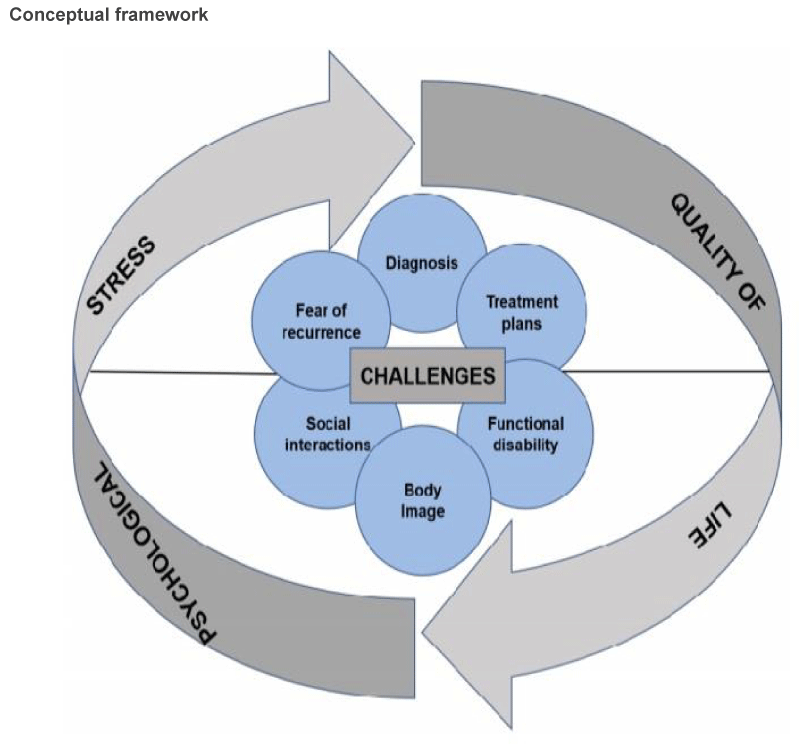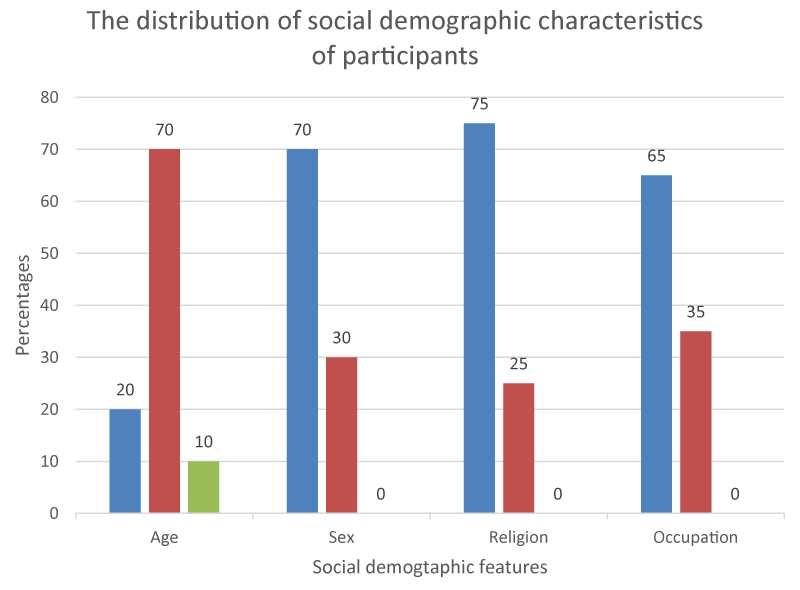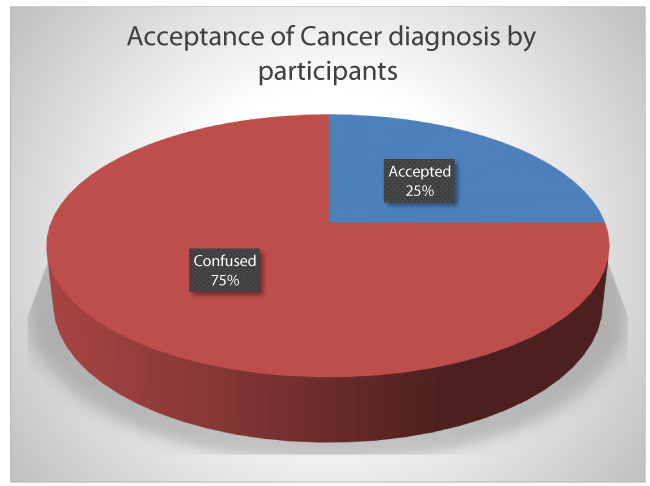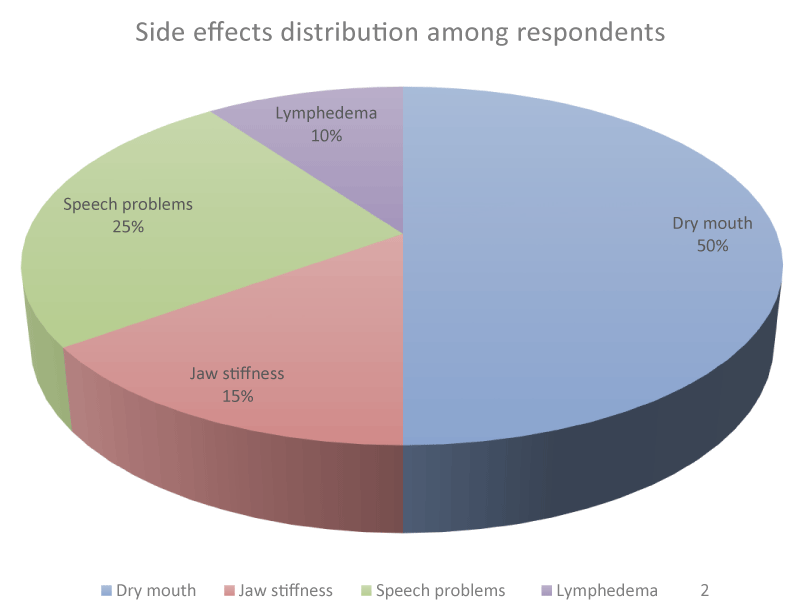Global Journal of Cancer Therapy
Patient’s experiences on receiving radiation therapy for head and neck cancer pre, pending and post treatment: A qualitative study at Bugando medical centre Mwanza, Tanzania
Francis Kazoba1* and Juston John2
2Department of Radiation Therapy, Muhimbili University of Health and Allied Sciences (MUHAS) P.O BOX 65001 Dar-es-salaam, Tanzania
Cite this as
Kazoba F, John J (2021) Patient’s experiences on receiving radiation therapy for head and neck cancer pre, pending and post treatment: A qualitative study at Bugando medical centre Mwanza, Tanzania. Glob J Cancer Ther 7(1): 046-049. DOI: 10.17352/2581-5407.000042The objective of this study was to present a descriptive summary of patients experiences on receiving radiation treatment for Head And Neck Cancers (HNC). A qualitative descriptive study design was used and 60 patients who undergo radiation therapy for head and neck cancers at Bugando medical centre in Mwanza were randomly selected. The face to face interviews were conducted for data collection to 60 patients who receive radiation treatment for head and neck cancers between April 2021 to June 2021 for descriptive and thematic analysis of data collected. Experiences from interview revealed six main themes:
Understanding and acceptance of disease, Desire to know the treatment plan and the overall treatment process,Functional disability, Change of body image, Decrease of social interactions, Fear of cancer recurrence. Little attention have been directed in knowing the experiences on receiving radiation treatment by patients. Findings from this study have contributed to the development of head and neck cancer patients support and education to patients and families.
Background of the study
Head and Neck Cancers (HNC) ranks six among the most common cancers worldwide, and it is estimated that there are more than 640,000 new cases of HNC and 350,000 deaths occurring each year worldwide.The optimal management of head and neck cancer requires a multidisciplinary approach, which include surgery, radiotherapy and chemotherapy. Radiotherapy is the main stay and it may be used alone or as a part of multi modality approach.
The increasing incidence of Head and Neck Cancer (HNC) in Africa is mostly due to increasing smoking habits, westernization in lifestyle and diet, HIV/HPV and unfavourable fiscal policies for health. Oral cancer potentially constitutes a notable fraction of the global cancer burden, particularly in developing Africa. Sub-Saharan Africa is experiencing a rapidly increasing burden of cancer-related morbidity and mortality. While annual deaths in the region resulting from Human Immunodeficiency Virus (HIV), tuberculosis,and malaria are steadily declining, cancer deaths are projected to increase by 85% between 2008 and 2030. Moreover, these projections assume static age-specific incidence rates and are based solely on projected population growth and aging. Population-based cancer registries, however, demonstrate increasing cancer incidence, likely resulting from HIV and westernization of lifestyles. This suggests future cancer burden in the region may be significantly underestimated.
Earlier cancer detection via screening, insights into tumour biology and pathogenesis, as well as improved treatments and supportive care, have contributed to increasing cancer survivor ship in high-income countries. However, cancer patients in sub-Saharan Africa have largely not benefited from these advances and outcomes remain poor because of severely limited resources for diagnosis and treatment, as well as possible differences in the aetiology and pathogenesis of cancer in this region. The overwhelming majority of head and neck cancers and related deaths occur in low- and middle-income countries, which have challenges related to burden of disease versus access to care. Due to scarcity of published data regarding head and neck cancers in Tanzania, it is difficult to know the magnitude of the problem in Tanzania and most recent studies in head and neck cancers focuses on effectiveness of treatment modalities and management of side effects and toxicities due to treatment. The aim of this study was to find the patients experiences on receiving radiation treatment for head and neck cancers and the study results paved a way on increasing the knowledge on those experiences and improve contribute to the development of head and neck cancer patients support and education to patients and families.
Material and methods
Setting and sample
The study was hospital based at Bugando medical centre radiotherapy department in Mwanza Tanzania. The hospital offers specialist inpatient and outpatient services and serves as referral hospital for lake zone patients. The study sample consisted of 60 head and neck cancer patients treated at Oncology wing .Participants were between 25 to 75 years old with the average age of 50 years. Most participants were peasant by occupation.
Methods
Qualitative descriptive study design was used. Data collection was achieved by face to face interviews to obtain the information on the patients experiences in radiation therapy for head and neck (HNC). The data collected were on social demographic information and other information on the experiences faced on the course of treatment. The duration of data collection was from April 2021 to June 2021. After obtaining ethical clearance and permission from the university and hospital, eligible patients scheduled for radiation therapy were invited to participate in the study. Participation was voluntary and informed consent in writing, was obtained from the volunteers. Face to face interviews, used to determine individuals’ experiences, were conducted in Swahili.
Results
Social demographic characteristics
A total of 60 patients who are undergoing radiation therapy for head and neck cancers at Bugando medical centre oncology wing participated in face to face interviews.Majority of them were male 14 (70%), 65% of the participants were employed while 35% were unemployed. 15 participants (75%) were Christians while only 5 participants (25%) were Muslims Figure 1.
Six themes arose from data collection. There were making sense and acceptance of diagnosis, desire to know the treatment plan and the overall treatment process, functional disability, change of body image, decrease of social interactions and fear of cancer recurrence.
Understanding and acceptance of diagnosis
Cancer is popularly known as killer disease since it is the cause of many deaths in Tanzania and worldwide.Knowing that you have been diagnosed with cancer is very bad experience to patients.It is associated with difficulties in understanding how a person acquired cancer and acceptance of the disease. Patients also became interested to know how they will be treated, methods of treatment and overall treatment process including the possible side effects. This stressful situation brings about the decreased Quality of Life (QOL) of a patients due to disturbance of physical, social and mental well being. Majority of participants of this study explained sincerely that it didn’t make sense to them that they are diagnosed with cancer and it was difficult to accept that situation because they know cancer is a killer disease Figure 2.
Desire to know treatment plan and overall treatment process
All participants explained their desire to be well informed on how the treatment plan will be conducted and the overall treatment process. This is due to fact that head and neck region contain the critical organs such as brain. The believe that radiation only damage also made many participant interested to know what will happen during the course of their treatment.
Functional disability,change of body image and decreased social interactions
Patients with head and neck cancer often experience speech difficulties, eating, and respiratory problems as well as the psychological effects of loss of function and change in body image. Majority of participant of the study complained on Functional disability which were brought about by the side effects of radiation treatment such as mouth dryness (xerostomia), mouth and gum sores, difficulty swallowing, weight loss, speech problems, stiffness in the jaws, nausea, hair loss, a type of neck and face swelling called lymphedema, and tooth decay. These side effect caused a decrease in Quality of Life (QOL) hence causes functional disability, change of body image and decreased social interaction to participants of this study Figure 3.
Fear of cancer recurrence
Cancer recurrence is one of long term effect after radiation therapy. Patient treated with radiation sometimes have fear that their cancer will emerge again after treatment which causes the psychological disturbance. 40% of participants of this study had fear of Cancer Recurrence (FoR) while the other 60% believed that treatment will finish their disease and there will be no recurrence in the future Table 1.
Discussion
Several experiences are encountered by patients with head and neck cancer who are undergoing radiation therapy in relation to pre, pending and post treatment period. This study aimed to determine the patients experiences on receiving radiation therapy. In this study patients explained the difficulties in understanding and acceptance of cancer diagnosis, desire to know the treatment plan and overall treatment process, functional disability, change of body image, fear of cancer recurrence, and decreased social interactions. Knowing that a person is diagnosed with cancer is a difficult and stressful condition since cancer is known as a killer disease. This situation causes the decreased physical, mental and social stability hence decreases the quality of life of a person concerned. Many studies explain the importance of preparation of patients mind to receive such terrible information and psychological support after receiving such information on diagnosis of cancer.
Radiation therapy for head and neck cancers takes time up to three months.It involves many processes and decisions.It involves treatment simulation, treatment planning and overall treatment process.Patients diagnosed with head and neck cancers are found to have a desire to know the treatment planning process and their overall treatment process because head and neck region contain critical organs such as brain. The street belief that radiation only kills and it can never cure also give many patients desire to know the overall treatment process. Functional disability brought about by radiation treatment side effects is also a very important experience that head and neck cancer pass through during and after treatment. This causes the change of body image of the patients which causes the decrease of social interactions of patients.The effect of decreased social interactions causes the decrease of quality of life of patients and their ability to perform their daily economic and social activities.Although the fear of cancer recurrence is not much indicated in many studies of head and neck cancer patients but the study found that there was 40% proportion of study population with the fear of recurrence.This is a significant proportion to concentrate on more studies on this experience.
The study had almost similar findings as the study conducted by Maurene in Canada which found that radiation therapy can be debilitating and patients can suffer short and long term physical, functional and psychological problems including pain,fatigue, difficulties with xerostomia, weight loss, loss of taste, dysphagia and candidiasis. Also the study done on patients perspectives on complications of radiation therapy for head and neck cancers explained patients experiencing dry mouth, overall weakness, mouth sores and pain, taste changes and weight loss.The study done on symptoms experiences and management of patients with head and neck cancer receiving radiation therapy in 2017 explained eating difficulties, distress and speech difficulties [1-22].
Conclusion
Radiation therapy for head and neck cancer is associated with many experiences to patients which can be negative experiences due to lack of knowledge and individual patient support.The study aimed at determining patients experiences on receiving radiation treatment for head and neck cancers so that the improved patients support and education on those experiences can be determined Individual patient support and education on overall treatment process and associated side effects is significant provided to improve patients experiences on receiving radiation therapy for head and neck cancers.Also more studies should be done on this matter for better understanding of those experiences to improve patient care for head and and neck cancers.
- Parkin DM, Nambooze S, Wabwire-Mangen F, Wabinga HR (2010) Changing cancer incidence in Kampala, Uganda, 1991–2006. Int J Cancer 126: 1187-1195. Link: https://bit.ly/387odxK
- Chokunonga E, Borok MZ, Chirenje ZM, Nyakabau AM, Parkin DM (2013) Trends in the incidence of cancer in the black population of Harare, Zimbabwe 1991–2010. Int J Cancer 133: 721-729. Link: https://bit.ly/3sCk0vD
- Msyamboza KP, Dzamalala C, Mdokwe C, Kamiza S, Lemerani M, et al. (2012) Burden of cancer in Malawi; common types, incidence and trends: National population-based cancer registry. BMC Res Notes 5: 0500-5-149. Link: https://bit.ly/3mt6jho
- Parkin DM, Sitas F, Chirenje M, Stein L, Abratt R, et al. (2008) Part I: Cancer in indigenous Africans--burden, distribution, and trends. Lancet Oncol 9: 683–692. Link:https://bit.ly/3sIbrQ2
- Ferlay J, Shin HR, Bray F, Forman D, Mathers C, et al. (2010) GLOBOCAN 2008 v2.0, Cancer Incidence and Mortality Worldwide: IARC CancerBase No. 10 [Internet] Lyon, France: International Agency for Research on Cancer Link: https://bit.ly/3grSFaq
- Yeh SA (2010) Radiotherapy for Head and Neck Cancer. Semin Plast Surg 24: 127–136. Link: https://bit.ly/3Dck1er
- Mwansasu C, Liyombo E, Moshi N, Mpondo BCT (2015) Pattern of head and neck cancers among patients attending muhimbili national hospital tanzania. Tanzan J Health Res 17: 1-6. Link: https://bit.ly/3j5LIxw
- Gilyoma JM, Rambau PF, Masalu N, Kayange NM, Chalya PL (2015) Head and neck cancers: A clinico-pathological profifi le and management challenges in a resource-limited setting. BMC Res Notes 8: 772. Link: https://bit.ly/2UHvDVy
- Ratko T, Douglas GW, Souza J De, Belinson SE, Aronson N (2014) Radiotherapy Treatments for Head and Neck Cancer Update. Eff Heal Care Progr Comp Eff Rev 144. Link: https://bit.ly/2UKoKms
- Ang KK, Harris J, Wheeler R, Weber R, Rosenthal DI, et al. (2010) Human papillomavirus and survival of patients with oropharyngeal cancer. N Engl J Med 363: 24–35. Link:https://bit.ly/38a1qkQ
- Belyea J, Ribby M, Jaggi R, Hart RD, Trites J, et al. (2011) Wait times for head and neck cancer patients in the Maritime Provinces. J Otolaryngol Head Neck Surg 40: 318–322. Link:https://bit.ly/2WgYmkg
- Björklund M, Sarvimäki A, Berg A (2010) Living with head and neck cancer: A profile of captivity. Journal of Nursing and Healthcare of Chronic Illness 2: 22–31. Link:https://bit.ly/3kfXMf3
- Blows E, Bird L, Seymour J, Cox K (2012) Liminality as a framework for understanding the experiences of cancer survivorship: A literature review. J Adv Nurs 68: 2155–2164. Link:https://bit.ly/3zcmovo
- Janowski K, Kurpas D, Kusz J, Mroczek B, Jedynak T (2013) Health-Related Behavior, Profile of Health Locus of Control and Acceptance of Illness in Patients Suffering from Chronic Somatic Diseases. PLoS One 8: e63920. Link: https://bit.ly/2Wlb9T8
- Linton SJ, Shaw WS (2011) Impact of psychological factors in the experience of pain. Phys Ther 91: 700-711. Link: https://bit.ly/2WahNLH
- Fang FM, Liu YT, Tang Y, Wang CJ, Ko SF (2004) Quality of life as a survival predictor for patients with advanced head and neck carcinoma treated with radiotherapy.Cancer 100: 425-432. Link: https://bit.ly/3k9wPJO
- de Graeff A, Leeuw WJ, Ros GJ, Hordijk GH, Blijham JA (2001) Sociodemographic factors and quality of life as prognostic indicators in head and neck cancerEur J Cancer 37: 332-339. Link: https://bit.ly/2XDeRb5
- Howren MB, Christensen AJ, Karnell LH, Funk GF(2010) Health-related quality of life in head and neck cancer survivors: impact of pretreatment depressive symptoms. Health Psychol: Off J Div Health Psychol Am Psychol Assoc 29: 65-71. Link:https://bit.ly/3B9qlln
- Sadat F, Wienke A, Dunst J, Kuhnt T(2012) Survival of patients with head and neck cancer. Impact of physical status and comorbidities Strahlenther Onkol188: 62-70. Link: https://bit.ly/3B0l2Vd
- HA Adeola, AfroghehII AH, HilleIII AH (2018) The burden of head and neck cancer in Africa: the status quo. and research prospects. 73. Link: https://bit.ly/2XQ6OrF
- Adeola HH, Amir A, JOS A (2014) The Burden of Oral Cancer in Africa Requires Research.
- Faggons C, Mabedi C, Shores C, Gopal S (2015) Review: Head and neck squamous cell carcinoma in sub-Saharan Africa. Malawi Med J 27: 79-87. Link: https://bit.ly/3jaDsg0

Article Alerts
Subscribe to our articles alerts and stay tuned.
 This work is licensed under a Creative Commons Attribution 4.0 International License.
This work is licensed under a Creative Commons Attribution 4.0 International License.




 Save to Mendeley
Save to Mendeley
